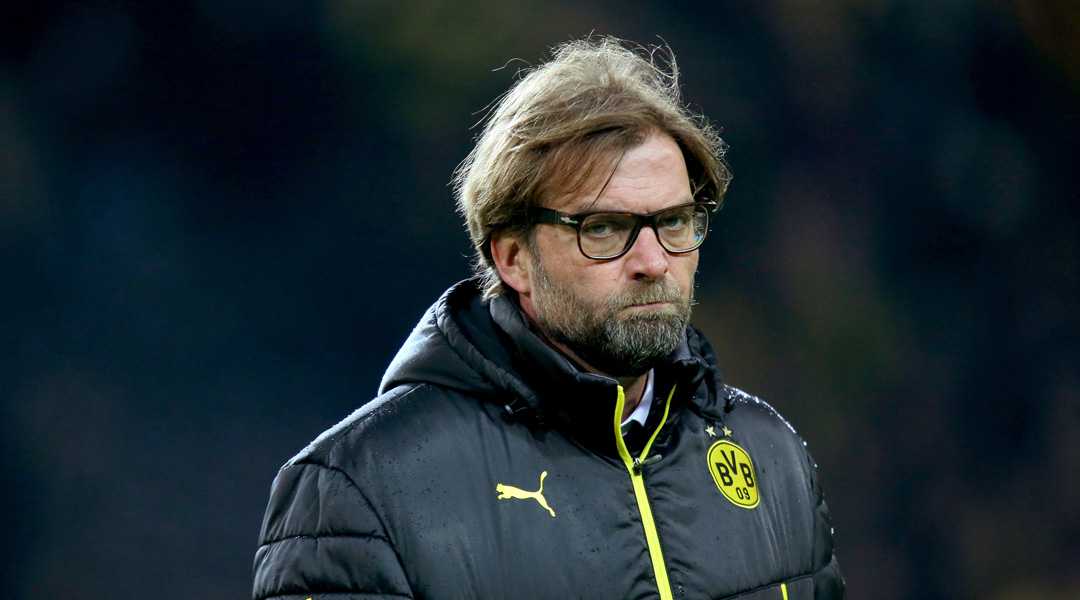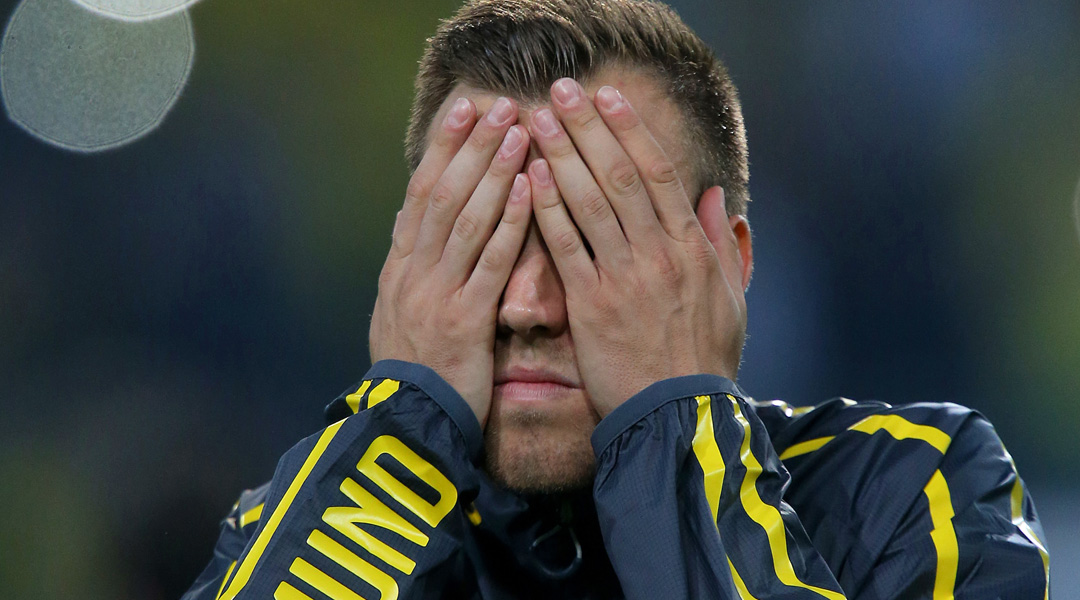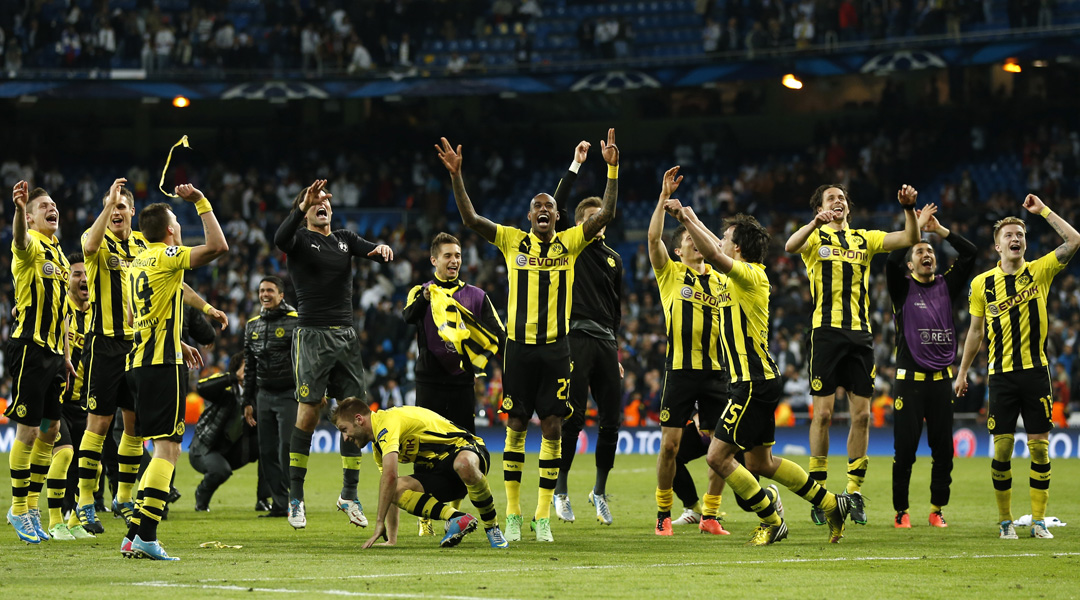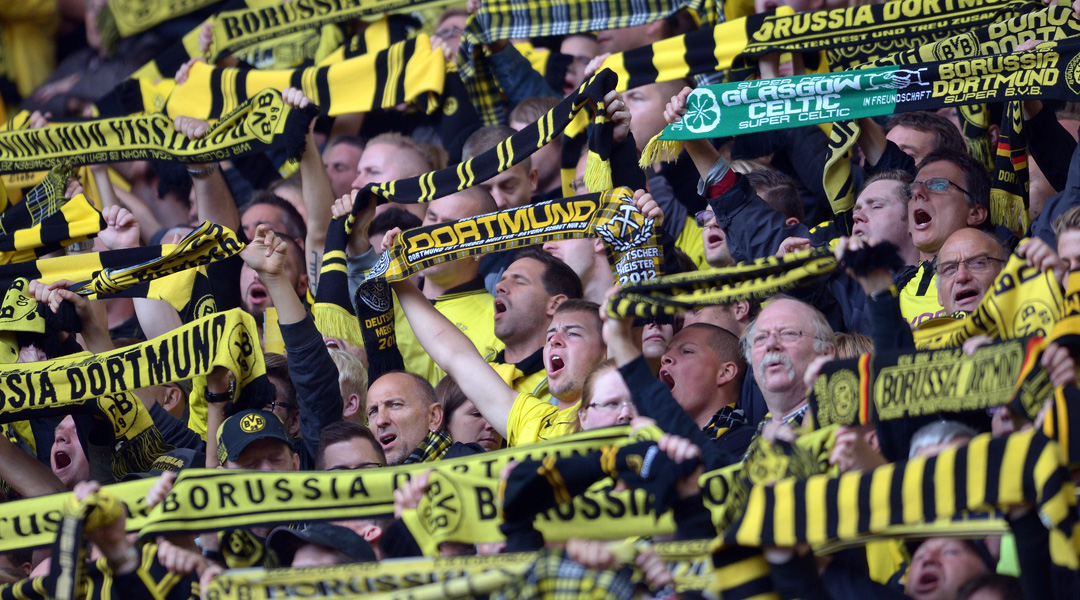Don't panic! Why Dortmund are keeping a cool head, despite early-season 'crisis'
With Borussia Dortmund heading in to this weekend's 'Klassiker' against Bayern Munich 14 points and 14 places behind their Bundesliga rivals, many would expect the 2012 champions to be sweating - Uli Hesse explains why they aren't...

Borussia Dortmund's positivity at the start of the new league season lasted just nine seconds. That's how long it took for Leverkusen forward Karim Bellarabi to give his side the lead in Dortmund on the first day of the new campaign.
It was the fastest goal in Bundesliga history. And ever since, Borussia are not the team they used to be.
In the league, that is. The domestic cup competition poses no problems (2 games, 2 wins, 7 goals scored) and the Champions League is a walk in the park (3 games, 3 wins, 9 goals scored, 0 conceded).
It's only in the Bundesliga that the team which Jürgen Klopp not so long ago called "the most exciting project in European football" suddenly looks very, very mundane.
The discrepancy between the team's performances under midweek European floodlights and on bread-and-butter Bundesliga weekends is so striking that the players even decided to wear their Champions League kit when they hosted Hannover 96 on Saturday. It was an almost desperate attempt to break a curse that mystifies the players and the coaching staff as much as the vast majority of observers.
Hannover, who had lost four of their previous five games and were winless away from home since May, won 1-0. It was Dortmund's fourth defeat on the trot. They are now in 15th place, a single point above the relegation zone. And their next opponents are Bayern Munich.
Root cause
Get FourFourTwo Newsletter
The best features, fun and footballing quizzes, straight to your inbox every week.
The most obvious question is: how did this happen? A small part of the club's massive fanbase blames the players and presumes they only give their all in the Champions League, lose focus and then make silly mistakes in the Bundesliga. Most supporters, though, know that this is too simple an explanation.

After Borussia's home defeat against relegation candidates Hamburg, the South Stand – the club's gigantic terrace which holds almost as many people as Leverkusen's entire ground – applauded the team, as the fans were in no doubt that nothing had been wrong with the effort or the will.
The same happened after the Hannover match, during which Borussia played well and created a plethora of chances, then fell behind against the run of play to a brilliantly executed free-kick.
The majority of supporters accept that a combination of events beyond anyone's control, plus a hefty amount of sheer bad luck, are at the root of the rot. Those events include an uncanny string of injuries, especially among their creative midfielders.
Almost all of the team's key players missed large parts of their pre-season preparations, were out for some weeks during the first month of the season, or are still sidelined. It means the team never had an opportunity to find their rhythm and gel. The line-up, the formation and the system changed almost from game to game.
European dreamers
But why, people wonder, didn't this affect the team's Champions League performances? The most likely explanation is that it's just a different game.
In recent years, media outside Germany have lauded Dortmund's marvellous counter-attacking game, and fans all across Europe were thrilled by the sight of fast and elegant players like Marco Reus or Henrikh Mkhitaryan dashing across the pitch. However, that was always the dinner party, not a normal day's work.
For Dortmund, a normal day at the office was playing against teams like Düsseldorf or Braunschweig, who put every man behind the ball and wouldn't dream of granting the likes of Reus and Mkhitaryan the space they enjoyed when they met Manchester City or Real Madrid. Ever since Dortmund's 2012 title, very few Bundesliga teams even entertain the thought of giving Borussia a game.

Dortmund struggled with this much more than rivals Bayern, who had the means (and a 40 years of experience) to deal with such opponents. That is why Dortmund finished 25 and 19 points behind the Munich giants in the past two years, even though they were always able to hold their own in head-to-head encounters.
It's just that Dortmund dropped too many points against pedestrian but defensively sound teams. Star striker Robert Lewandowski would often find a solution and the target in such games, but not always.
You can even understand why this happened. After those back-to-back league titles, Dortmund assembled a team that would be competitive in the Champions League.
This meant stabilising the defence (to hold powerful offences at bay) and building a fleet-footed and technically gifted offensive midfield (to hit the likes of City and Real on the break).
Out went Shinji Kagawa, who can operate in the tighest of spaces and almost seems to enjoy searching for passing lanes surrounded by four pairs of legs. In came Reus, Mkhitaryan or Pierre-Emerick Aubameyang, who can beat Usain Bolt over 30 yards. (And no, this is not spoken figuratively.)
Twisted fate
Maybe this was a mistake. Maybe Dortmund should have focused less on the Champions League and instead tried to create a team better suited to domestic challenges.
But the club didn't have the sort of money that Bayern were spending. They had to choose their targets carefully. And you can't say it didn't work. Borussia did very well in Europe while still qualifying for the Champions League rather comfortably.
But now it's come back to haunt them. And that is the truly maddening, confusing, irrational aspect of the current mess – it shouldn't have happened now. Because Dortmund addressed all their potential problems quite smartly during the summer.
They brought back Kagawa to pull the strings in the hole. They signed Freiburg's young Matthias Ginter, a member of Germany's World Cup-winning squad, who can play almost anywhere in defence and midfield.
They signed not one but two strikers, very different types, to offset the loss of Lewandowski – the robust Ciro Immobile, Serie A's best marksman, and Adrian Ramos, a Colombian who's fast and technically strong.
Klopp then showed Aubameyang how to play up front instead of on the wing and taught the team a variety of formations, even a 4-4-2.

When the season began, Dortmund were ready. Now they had the means and the experience to handle all kinds of opponents, which is why most people expected they could use the first weeks of the season to build a lead over a Bayern side that would feel the after-effects of the World Cup. Heck, even Pep Guardiola had predicted his team would struggle until the winter break.
And then... this. As noted, Dortmund's defence gave away the first goal after all of nine seconds, and many absurd lapses at the back followed. Add to this a bizarre number of stray passes in midfield and countless chances that go begging up front. The mind boggles.
Rescuing the project
The only positive thing about the situation is that Klopp has been proven right about some aspects of the "exciting project". He's always said that he isn't very keen on moving because he knows that Borussia offer him opportunities he wouldn't have elsewhere.
And indeed, the club handles the crisis in an unusual way. Nobody on the board – or, in fact, in the media – doubts the manager or his players, or puts additional pressure on the side.
The same holds true for the support. Of course the recent years have seen a large number of new converts attaching themselves to the black and yellow cause. Many of them are not used to lean times, but the die-hard supporters remember very well that their club was almost extinct nine years ago.
Most of them accept that some bizarre form of curse is at work here and agree with Keith, an American Borussia fan since the early 90s. "This defies logic," he posted on Facebook after the Hannover loss. "We just have to ride it out."
Of course being philosophical is a fine attitude, but not a solution. Finding that is Klopp's job now and he knows it. Perhaps the next two league games – away at Bayern and at home to an in-form Mönchengladbach – are blessings in disguise. As tough as the games will be, those two teams are unlikely catenaccio candidates, so perhaps Dortmund can play some Champions League football again.
Speaking of the Champions League, missing out on it is the one real worry among Dortmund's fans at the moment. As of now, nobody seriously expects Borussia to flirt with relegation.
But fourth place, the slot for the Champions League play-offs, is already 10 points away. If Dortmund finish fifth or worse, some people fear that local boy Reus will not extend his contract and execute a buy-out clause.
As quite a few fans have pointed out recently, one way of avoiding that scenario is obvious: Dortmund simply have to win the Champions League.
Bayern Munich vs Borussia Dortmund LIVE ANALYSIS with Stats Zone
